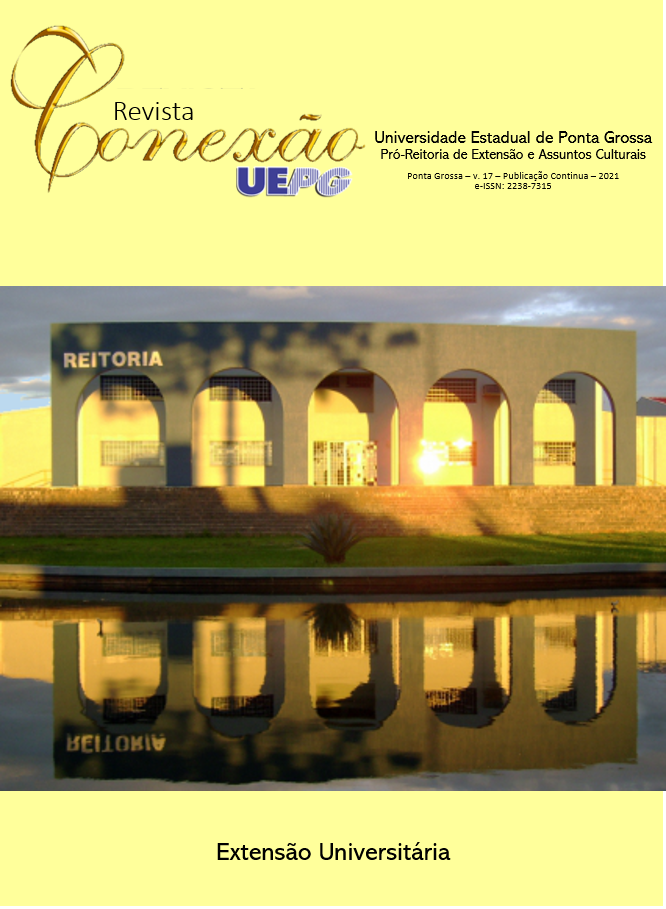ENVIRONMENTAL LITERACY DURING COVID-19 PANDEMIC: ACTIVITIES AND OUTCOME OF THE REMOTE ASYNCHRONOUS INTERACTION
DOI:
https://doi.org/10.5212/Rev.Conexao.v.17.17757.56Abstract
This paper presents the outreach project “Environmental Education: raising awareness about the future” carried out by environmental engineering professors and students in partnership with the social program “Viver Ações Sociais” developed in Chapecó, Santa Catarina, Brazil. The text describes the activities and audiovisual products of asynchronous remote interaction – an imposition of the spread and contamination of COVID-19 – with a group of children aged between 6 and 10, conducted from March to August 2020. The methodological strategies – participative and collaborative – for the definition and structuration of content led to discussions in the following themes: (a) caring for the environment, (b) waste and recycling, (c) natural water resource and (d) renewable energies. Despite the technological difficulties, the results demonstrate the increasing understanding of the environmental awareness, the improvement of knowledge and the development of critical thinking related to these themes.
Downloads
Downloads
Published
Issue
Section
License
a) Authors retain copyright and grant the journal right of first publication with the work simultaneously licensed under a Creative Commons Attribution License that allows others to share the work with an acknowledgement of the work's authorship and initial publication in this journal.
b) By submitting an article to the Revista Conexão UEPG and having it approved, the authors agree to assign, without compensation, the following rights to the Journal: the rights of first publication and the rights to redistribute the article and its metadata to the indexing and reference services that the editors deem appropriate.
c) Readers are free to transfer, print out and use the articles published in the Journal, as long as there is always explicit mention to the author(s) and to the Revista Conexão UEPG and as long as there is no alteration of the original work. Any other use of the texts needs to be approved by the author(s) and by the Journal.






